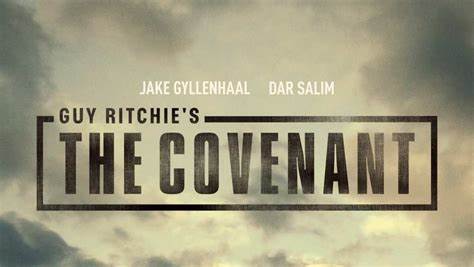Idea that “We need to do our best to understand each other,” reverberates throughout “The Covenant,” a film that masterfully encapsulates the complexity of human connection amidst the bleak backdrop of war-ridden Afghanistan. Guy Ritchie, celebrated for his electrifying movies, steers away from his traditional course and provides us with a remarkably unique narrative that exudes depth, emotion, and gripping storytelling.

In this epic human drama, an unusual friendship blossoms between a U.S. Army sergeant and a Muslim interpreter, both portrayed with incredible depth by Jake Gyllenhaal and Dar Salim respectively. Amidst a perilous environment, their camaraderie offers a testament to the unwavering resilience of the human spirit and our potential for hope, even in the most despairing circumstances.
Gyllenhaal and Salim are a beacon of thespian excellence in this film. Gyllenhaal, renowned for his nuanced performances, brings a rugged charm and emotional vulnerability to the sergeant’s role. Simultaneously, Salim, with his remarkable range, portrays the interpreter with an equal mix of strength and desperation. Together, their dynamic performances make us believe in their friendship, encapsulating mutual respect, fear, courage, and gratitude. Their heartfelt portrayal brings the characters to life, making them more than action heroes, but relatable beings of flesh and blood.

Yet, the prowess of “The Covenant” extends beyond its enthralling plot and exceptional performances. The film delves into a profound exploration of moral duty, sacrifice, patriotism, and loyalty. It offers a multi-dimensional view on the complexities of war, revealing the motivations and viewpoints of the various parties embroiled in the conflict – from the U.S. soldiers to the Afghan civilians and the Taliban fighters. The diverse perspectives presented prompt viewers to introspect their values and beliefs, promoting a deepened understanding of war and its consequences.
The film also presents a moving critique of the broken promises that are often a by-product of war. It exposes the failures of governments and bureaucratic systems, highlighting the profound betrayal felt by interpreters who were left behind despite promises of granting them visas. It poignantly depicts the shattered dreams of the Afghan people, who were promised peace and justice by the Taliban but instead were subjected to further violence and oppression.

While the film impresses with its thematic depth and the complexity of its narrative, it isn’t without its flaws. A few clichés, occasional lapses in logic, and underdevelopment of the motivations of the Taliban fighters stand out. A further exploration of these elements could have added more dimensions to the narrative. Nevertheless, these minor shortcomings hardly detract from the overall emotional impact and the powerful message of “The Covenant.” The film resonates on multiple levels, compelling audiences to not only enjoy an exciting cinematic journey but to delve deep into the intricacies of the human condition.

By skillfully weaving together compelling storytelling, top-tier performances, and thought-provoking themes, “The Covenant” becomes more than just a film; it’s a profound exploration of humanity and the aftermath of broken promises. With its deep-dive into the human experience and its lasting impact, it forces us to reflect on the critical importance of empathy, compassion, and understanding each other. Despite some room for improvement, “The Covenant” stands as a testament to the power of cinema that transcends entertainment and sparks dialogue about critical global issues.
To conclude, impression that “We need to do our best to understand each other,” profoundly echoes throughout the film. “The Covenant” serves as a potent reminder that the repercussions of our actions, particularly unfulfilled commitments, ripple through time and lives, urging viewers to appreciate the power of understanding and compassion amidst the often overwhelming complexities of life.
